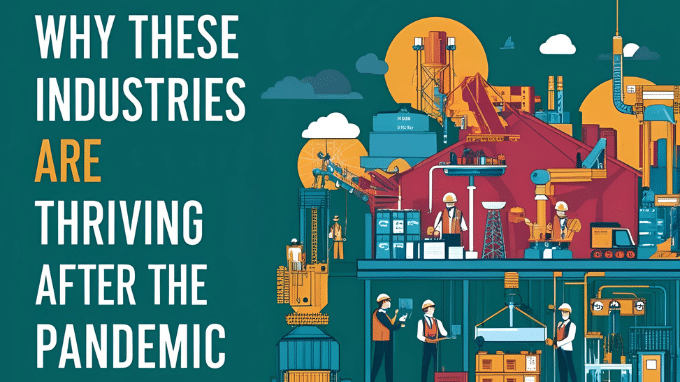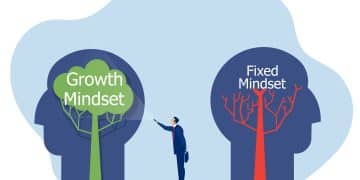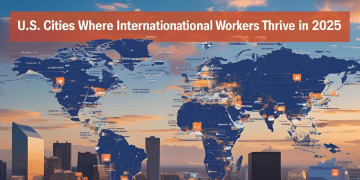Why These Industries Are Thriving After the Pandemic

We all remember how it felt in 2020: eerie silence in city streets, Zoom fatigue, layoffs, uncertainty. But as painful and unpredictable as that time was, it didn’t destroy everything. In fact, it sparked a transformation.
Fast forward to 2025, and you’ll see an American job market that looks different—more digital, more dynamic, and, in many ways, more human. Some industries crumbled. Others rebuilt stronger than ever. If you want to make smart moves in your career, this is the moment to understand who made it through, how they grew, and what it means for you.
What Changed Forever (And Why It Matters Now)

The pandemic didn’t just rearrange office layouts. It restructured entire sectors. Here’s how:
Digital Took the Driver’s Seat
Remote work, e-commerce, and automation didn’t just grow—they leapt forward. Businesses scrambled to digitize operations and invest in platforms that replaced face-to-face interaction.
Healthcare Became More Than a System
It became a lifeline. The U.S. healthcare sector had to stretch, adapt, and invent on the fly—and that pressure fueled lasting change, especially in telehealth and mental wellness.
Supply Chains Got Personal
When shelves went empty and deliveries stalled, companies finally saw supply chain resilience not as a backend issue, but a top priority.
People Reprioritized Everything
Work-life balance, mental health, and flexibility became non-negotiables. This pushed industries to reevaluate not just what they offer, but how they function.
All of these shifts are fueling industry growth. And understanding that can help you aim your career in the right direction.
Read next: How to Land a Remote Job in 2025
5 U.S. Industries That Came Back Stronger
1. Healthcare & Life Sciences
There’s a reason this field shows up in almost every job market analysis: it never stops evolving.
Why it’s booming:
- Aging population + pandemic scars = massive investment in care systems
- Telehealth and digital health tools became standard
- Mental health needs hit record highs
Skill demand: Telemedicine platforms, behavioral health training, crisis response, care navigation
Job outlook:
- Registered Nurse: $81,000 average
- Physician Assistant: $121,500
- Mental Health Counselor: $60,000–$75,000
What it means for you: If you care deeply about people and want your work to matter in a very real way, healthcare is an incredibly resilient and rewarding field. Whether you’re tech-savvy or hands-on, there’s a place for you here.
2. Technology & Cybersecurity
The pandemic proved that every company is a tech company. Period.
Why it’s booming:
- Remote work forced companies to rebuild their digital infrastructure
- Cyberattacks surged, spotlighting the need for stronger digital defenses
- Cloud and automation took over daily operations
Skill demand: Cybersecurity certs, cloud platforms (AWS, Azure), front-end/back-end development, UX
Job outlook:
- Cybersecurity Analyst: $110K–$145K
- Cloud Architect: $130K–$160K
- Full Stack Dev: $115K average
Let’s be real: Tech can be intense, but it’s also filled with opportunity. If you’re someone who likes learning fast, solving problems, and maybe even working remotely in your hoodie, this might be your space.
3. E-Commerce & Logistics
If you got used to groceries showing up on your doorstep or birthday gifts arriving the next day—you’re not alone. And you’re part of the reason this sector is booming.
Why it’s booming:
- Consumers now expect quick, seamless, digital-first experiences
- Even brick-and-mortar shops need a digital layer
- Logistics became a key differentiator, not just a cost center
Skill demand: E-commerce platforms, inventory systems, digital marketing, supply chain strategy
Job outlook:
- E-Commerce Manager: $90K–$120K
- Supply Chain Analyst: $78K–$95K
- Warehouse Automation Specialist: $60K–$85K
Here’s the good news: You don’t need to know how to code. From product descriptions to delivery optimization, this world runs on communication, coordination, and creativity.
4. Green Energy & Infrastructure
You’ve probably seen solar panels popping up in your neighborhood, or EV chargers added near shopping centers. That’s not random—it’s the green economy in motion.
Why it’s booming:
- Climate commitments are real and enforceable
- Infrastructure projects are funded at record levels
- EVs, solar, and wind tech are more affordable than ever
Skill demand: Environmental sciences, ESG frameworks, clean energy engineering
Job outlook:
- Environmental Engineer: $88K–$105K
- Solar Installer: $50K–$70K
- ESG Analyst: $85K–$115K
What it really means: This sector is for people who want to make a difference. Whether you’re hands-on in the field or building clean energy models behind a screen, you’ll be contributing to something that actually matters.
5. Education & Workforce Development
Remember when everyone had to figure out how to use Zoom? That was just the beginning. Now, learning looks completely different—and so do the careers behind it.
Why it’s booming:
- Online learning became the norm
- Career pivoters need faster, more targeted upskilling
- Corporations are building internal academies to train talent
Skill demand: LMS (Learning Management Systems), content design, coaching, program leadership
Job outlook:
- Instructional Designer: $70K–$95K
- Career Coach: $55K–$80K
- Program Director: $95K–$130K
Human angle: If you’re the kind of person who enjoys explaining things, guiding others, or designing cool learning experiences, there’s never been a better time to jump in.
Read next: Remote Work Salary Trends in 2025
Stats That Should Grab Your Attention
- Cybersecurity job growth: +35% through 2032 (BLS)
- E-commerce boom: 25% of U.S. retail sales will be online by 2027 (U.S. Census)
- Green energy surge: $3T+ in clean energy investments by 2030 (DOE)
- Mental health demand: +20% increase post-pandemic (CDC)
These numbers aren’t just stats. They’re signals—clear indicators of where hiring is heating up and where your next opportunity might live.
Don’t Just Follow Hype. Follow Strategy
It’s tempting to dive into whatever’s trending. But chasing hype without a game plan rarely works out.
Instead, avoid these common traps:
- Jumping into a new field without checking the actual skills needed
- Trusting your instincts more than real job market data
- Hoping everything goes “back to normal” someday
A better way forward: Pause. Think. Take stock of your strengths. Then line them up with the industries growing right now.
Make This Work for You in 2025
Want to take real steps toward a future-proof career? Start here:
1. Stay informed
Use sources like BLS.gov, LinkedIn Workforce Reports, and Glassdoor to keep tabs on employment trends and economic forecasts.
2. Upskill with purpose
Pick certifications or short courses that match real-world skill demand. Look for ROI, not just popularity.
3. Be flexible
Hybrid roles. Remote gigs. Side projects. The more flexible you are, the more doors stay open.
4. Don’t wait
The industries that are growing won’t stay wide open forever. Now is your window to move.
Read next: How to Tailor Your Resume for Different Industries
The Future Is Already Here
The pandemic didn’t just disrupt. It revealed. It exposed weak points—and highlighted which sectors were built to adapt.
Today, those same sectors are leading the way into 2025.
So whether you’re climbing the ladder, changing fields, or just getting started, this is your chance to align with growth.
Watch the trends. Build your skills. Follow where the opportunity is.
You’ve got this—and your next move could be your smartest yet.





